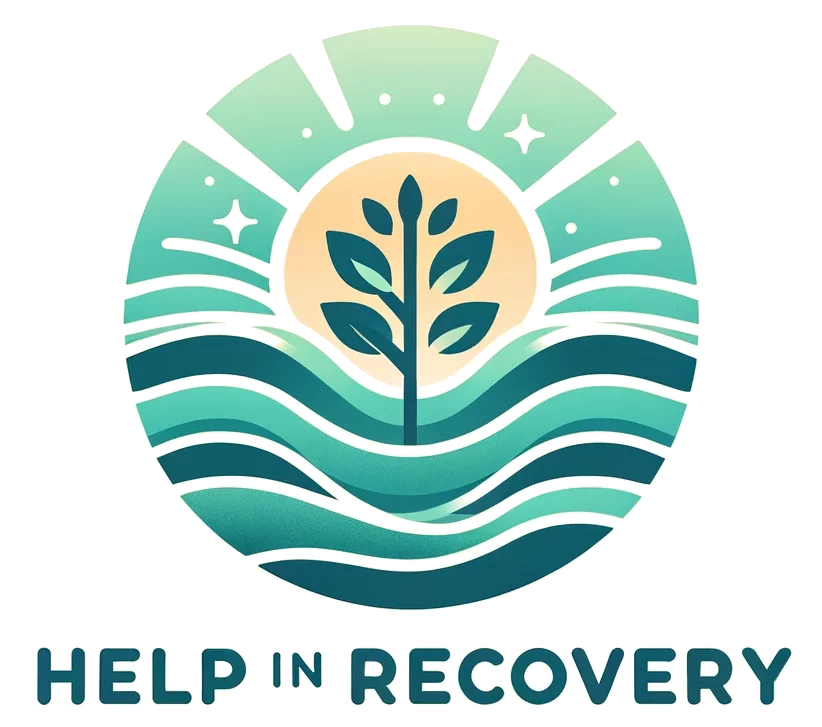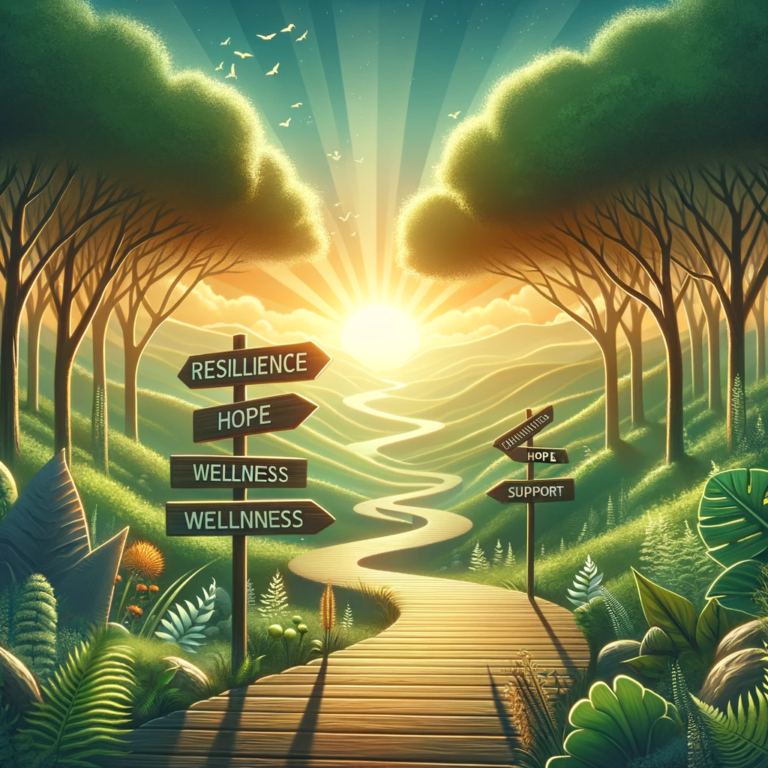Can I Be Fun Without Drinking? Exploring Sobriety’s Joyful Side
In a world where social gatherings often revolve around alcohol, the question arises: “Can I Be Fun Without Drinking?” At Help in Recovery, we understand the challenges and triumphs of embracing a sober life. This article delves into the heart of this question, exploring how sobriety doesn’t just sustain but enhances our ability to enjoy life to its fullest.
The journey towards sobriety is often clouded by misconceptions. One prevalent myth is that alcohol is essential for fun and socialization. We’re here to debunk this myth, highlighting how sobriety opens doors to more authentic, fulfilling experiences. We’ll explore alternatives to alcohol in social settings, tackle the perceived social pressures, and share insights into the personal growth and new joys that come with a sober lifestyle.
Drawing on insights from expert sources and personal experiences, this article aims to reassure, inspire, and guide those contemplating a life without alcohol. Whether you’re in the early stages of considering sobriety or have already embarked on this transformative journey, “Help in Recovery” is your companion in discovering the vibrant, sober life that awaits.
Join us as we answer critical questions and provide practical advice for thriving in sobriety. It’s time to embrace the joy of living alcohol-free, proving that you can indeed be fun without drinking.
Table of Contents
- Introduction
- Understanding the Social Dynamics of Drinking
- Personal Journey: Navigating Social Settings in Early Sobriety
- Exploring Alternatives to Drinking in Social Situations
- Navigating Social Pressure: A Personal Take
- The Personal Growth from Sobriety
- Offering Advice to Others on Embracing Sobriety
- Conclusion: Embracing a Life of Joy and Fulfillment Without Alcohol
Introduction
In a world where social gatherings often revolve around alcohol, the question arises: “Can I Be Fun Without Drinking?” At “Help in Recovery,” we understand the challenges and triumphs of embracing a sober life. This article delves into the heart of this question, exploring how sobriety doesn’t just sustain but enhances our ability to enjoy life to its fullest.
The journey towards sobriety is often clouded by misconceptions. One prevalent myth is that alcohol is essential for fun and socialization. We’re here to debunk this myth, highlighting how sobriety opens doors to more authentic, fulfilling experiences. We’ll explore alternatives to alcohol in social settings, tackle the perceived social pressures, and share insights into the personal growth and new joys that come with a sober lifestyle.
Drawing on insights from expert sources and personal experiences, this article aims to reassure, inspire, and guide those contemplating a life without alcohol. Whether you’re in the early stages of considering sobriety or have already embarked on this transformative journey, “Help in Recovery” is your companion in discovering the vibrant, sober life that awaits.
Join us as we answer critical questions and provide practical advice for thriving in sobriety. It’s time to embrace the joy of living alcohol-free, proving that you can indeed be fun without drinking.

Understanding the Social Dynamics of Drinking
In a society where the clink of glasses and the buzz of a busy bar are synonymous with fun and connection, it’s easy to believe that alcohol is an indispensable part of social life. This belief is deeply rooted in both our history and culture, painting a picture where social gatherings without alcohol seem incomplete. But is this really the case? As we navigate the journey of sobriety, we begin to unravel the complex relationship between alcohol and social interaction, challenging long-held assumptions and discovering a new paradigm of enjoyment.
The Historical and Cultural Tapestry of Alcohol in Social Settings
From ancient rituals to modern-day celebrations, alcohol has always played a significant role in human society. It has been a symbol of festivity, a catalyst for conversation, and, in many cultures, a rite of passage. But this historical significance has also woven a narrative that often equates drinking with sociability. Different cultures around the world have their unique relationship with alcohol, but a common thread is its presence at the heart of social gatherings.
However, these cultural norms bring with them an unspoken pressure – the expectation to drink in social scenarios. Whether it’s a family gathering, a work event, or a night out with friends, the presence of alcohol is often assumed, and choosing not to partake can sometimes feel like swimming against the tide.
Breaking Down Misconceptions: The Joy of Sobriety in Social Life
The journey into sobriety is often shrouded in myths. One of the most pervasive is the belief that a life without alcohol is a life devoid of fun. This couldn’t be further from the truth. Stories from those who have embraced sobriety paint a picture of a richer, more authentic social experience. Without the haze of alcohol, interactions become more genuine, conversations more meaningful, and memories more vivid.
In the early days of my sobriety, I found that while certain social settings posed challenges, they were not insurmountable. The key was in finding environments where alcohol was not the focal point – like enjoying a football match at a pub. This approach, coupled with having a clear exit strategy for uncomfortable situations, allowed me to navigate the social landscape without compromising my commitment to sobriety.
Rethinking Fun: Discovering New Avenues of Enjoyment
Sobriety opens up a world of possibilities for social enjoyment beyond the confines of a bar or a party. It invites us to redefine fun – to seek activities that truly resonate with our interests and passions. From photography to running, these pursuits not only serve as fulfilling alternatives to drinking but also foster a sense of achievement and personal growth.
This shift is not just about finding new activities; it’s about rewriting social scripts. It’s about building new traditions that prioritize health, well-being, and genuine connections over the ritual of drinking. It’s a chance to make conscious choices about how we spend our social time, focusing on what truly brings us joy and fulfillment.
Can I Be Fun Without Drinking – Embracing a New Social Paradigm?
As we move forward in our journey of sobriety, we learn that the true essence of social life lies not in the drinks we consume but in the connections we forge and the experiences we share. This realization marks the beginning of a new chapter – one where social gatherings are no longer defined by what’s in our glass but by the quality of our interactions and the depth of our relationships.
In redefining the role of alcohol in social settings, we’re not just changing a habit; we’re transforming our approach to life. We’re choosing a path that leads to more authentic, meaningful, and enjoyable social experiences – a path that shows us that, indeed, we can be fun without drinking.
Personal Journey: Navigating Social Settings in Early Sobriety
Embarking on a sober life often brings its own set of challenges, especially in social settings. My early sobriety was a time of learning and adaptation, a period where I navigated the nuances of socializing without alcohol. Here, I share some of those experiences and the strategies that helped me along the way.
Experiences in Social Settings
In the initial phase of my sobriety journey, social settings were a battleground of temptations and discomforts. The key to my successful navigation through these situations lay in understanding my limits and being proactive about my choices.
- Choosing the Right Environment: I discovered that I could still enjoy social gatherings if there was a focus other than just drinking. Watching a football match at the pub, for instance, provided a shared experience that wasn’t centered around alcohol.
- Recognizing Comfort Levels: There were times when the pressure or temptation became overwhelming. Recognizing these moments was crucial for maintaining my sobriety.
Strategic Approaches to Socializing
Developing strategies to manage social situations became a vital part of my early sobriety. These tactics not only helped me maintain my commitment to not drinking but also made socializing more enjoyable.
- Exit Strategy: Having a plan to leave a situation if it became uncomfortable was empowering. Knowing that I could leave at any time gave me a sense of control and eased my anxiety.
- Preparation for Interactions: Anticipating questions about not drinking and preparing responses in advance helped me handle social inquiries confidently.
- Finding Supportive Company: Whenever possible, I surrounded myself with friends who understood and supported my decision to stop drinking.
Embracing New Social Norms
As I progressed in my sobriety, I started to embrace new social norms that aligned with my lifestyle change.
- Seeking Non-Alcoholic Alternatives: I often opted for non-alcoholic beverages, which helped me blend into social settings without drawing attention to my sobriety.
- Engaging in Meaningful Conversations: Sobriety enhanced the quality of my interactions, allowing me to engage in more meaningful and memorable conversations.
- Celebrating Small Victories: Every social event I navigated successfully without giving in to the urge to drink was a victory. Celebrating these moments reinforced my commitment to sobriety.
Growth and Confidence
The early days of sobriety in social settings were a journey of self-discovery. They taught me resilience, the importance of self-awareness, and the value of authentic connections. Over time, I became more confident in my ability to socialize without alcohol, finding joy in genuine interactions and the newfound clarity that sobriety brought.
Exploring Alternatives to Drinking in Social Situations
Finding joy in sobriety often means discovering new activities and interests that transcend the typical drinking environment. This journey of exploration not only provides enjoyable alternatives but also enhances our overall well-being. My experiences in taking up photography and running illustrate this beautifully.
The Shift Away from Alcohol-Centric Activities
The decision to stop drinking opens up a world of possibilities. Moving away from environments where alcohol is the main focus allows us to discover activities that offer deeper satisfaction and fulfillment.
- Broadening Horizons: Stepping out of the usual drinking scene encourages exploration of diverse interests and hobbies.
- Creating New Traditions: Social gatherings can be reimagined around activities that promote health and genuine connection.

Personal Journey: Discovering Photography and Running
My path to finding alternatives to alcohol was paved with the discovery of two passions: photography and running. These activities have not only filled the void left by alcohol but have also brought immense joy and a sense of achievement.
- Photography as a Creative Outlet:
- Capturing Moments: Photography has allowed me to see the world through a new lens, literally and figuratively. It’s about capturing moments and beauty in the mundane.
- Mindfulness and Presence: This hobby encourages mindfulness, as it requires living in the moment and observing the world keenly.
- Running for Physical and Mental Wellness:
- Health Benefits: The physical benefits of running are well-documented, from improved cardiovascular health to better sleep.
- Mental Clarity: Running has been a way to clear my mind, reduce stress, and enhance mental clarity.
The Benefits of New Hobbies and Interests
Engaging in hobbies like photography and running has brought about transformative changes in my life, mirroring the experiences shared by many in the sober community.
- Sense of Accomplishment: Learning a new skill or improving in a hobby provides a sense of achievement that alcohol never could.
- Building a Supportive Community: Many hobbies offer the opportunity to connect with like-minded individuals, building a supportive network.
- Enhanced Well-being: Regular engagement in these activities promotes overall well-being, contributing to a healthier and happier life.
The journey into alternatives to drinking in social situations is as rewarding as it is vital. It opens up a world where our social life is not defined by what’s in our glass but by the experiences we share and the memories we create. As we embrace these new hobbies and interests, we find that life has much more to offer, proving that fun and fulfilment in sobriety are not just possible, but abundant. You will no longer care about the question: Can I be fun without drinking.
Navigating Social Pressure: A Personal Take
Navigating social pressure, especially in settings where alcohol is prevalent, is one of the more nuanced aspects of embracing sobriety. My journey has taken me through various social landscapes – from friend gatherings and work events to weddings and funerals – each presenting its unique challenges. In this section, I share my approach to dealing with these pressures while staying true to my sober commitment.
Understanding Social Pressure in Different Settings
Social pressure can manifest differently depending on the setting. Recognizing these nuances is key to handling them effectively.
- Friend Gatherings: Often, these are relaxed environments, but they can still pose a challenge when alcohol is a regular feature.
- Work Events: Professional settings may have an undercurrent of expectation to drink, especially during celebrations or networking events.
- Weddings and Funerals: These emotionally charged events can intensify the pressure to partake in drinking as a social norm.
My Strategies for Managing Social Pressure
Through trial and error, I’ve developed strategies that help me navigate social pressure while maintaining my sobriety.
- Being Prepared with Responses: Anticipating questions about not drinking and preparing honest responses in advance has been crucial. This preparation helps in confidently explaining my choice to not drink.
- Staying Authentic: I’ve found that being authentic about my sobriety disarms most situations. People tend to respect a genuine and straightforward approach.
- Choosing Non-Alcoholic Options: Opting for non-alcoholic drinks allows me to participate in social rituals without compromising my sobriety.
Tactics for Different Social Scenarios
Different social scenarios require tailored approaches to manage the pressure effectively.
- Friend Gatherings:
- Communicating Openly: I often share my reasons for not drinking with close friends, which has helped in building understanding and support.
- Engaging in Non-Drinking Activities: Suggesting activities that don’t center around alcohol keeps the focus on the experience rather than drinking.
- Work Events:
- Setting Boundaries: Being clear about my limits in professional settings has helped me navigate these events with ease.
- Aligning with Supporters: Connecting with colleagues who respect my decision or are also not drinking creates a supportive environment.
- Weddings and Funerals:
- Emotional Preparedness: Recognizing the emotional triggers in these settings and preparing mentally to handle them has been key.
- Having a Support Person: Attending with a friend or family member who understands my sobriety journey provides additional support.
Embracing Sobriety with Confidence
The journey of navigating social pressure in sobriety is as much about self-discovery as it is about social interaction. It’s about finding the balance between social conformity and personal well-being. By approaching these situations with preparedness, authenticity, and confidence, I’ve been able to not just survive but thrive in my sobriety, no matter the social setting.
The Personal Growth from Sobriety
Sobriety is more than just the absence of alcohol; it’s a gateway to profound personal growth. Reflecting on my journey, I’ve witnessed significant improvements in how I handle life’s challenges, engage with my authentic self, and maintain my overall health and well-being. This transformation has been a cornerstone of my sobriety experience.
Enhanced Ability to Handle Life’s Challenges
The clarity that sobriety brings has allowed me to face life’s ups and downs with a level head and a calm heart.
- Improved Problem-Solving: Without the haze of alcohol, I’ve found that I can think more clearly and address problems more effectively.
- Emotional Stability: Sobriety has helped me manage my emotions better, leading to more balanced reactions and interactions with others.
- Increased Resilience: Dealing with challenges sober has built a resilience in me that I never knew I had.
Improvements in Sleep and Mental Health
One of the most noticeable changes since embracing sobriety has been in my sleep quality and mental health.
- Restorative Sleep: Gone are the nights of restless sleep and groggy mornings. Sobriety has blessed me with deeper, more restful sleep, leaving me refreshed and energized each day.
- Mental Clarity: The mental fog that often accompanied hangovers has lifted, allowing for sharper thinking and better focus.
- Enhanced Mood: I’ve experienced a noticeable improvement in my overall mood and outlook on life, contributing to a healthier mental state.
Sticking to Healthy Habits
Sobriety has been instrumental in helping me stick to healthier lifestyle choices.
- Regular Exercise: Without the lethargy and fatigue of hangovers, I’ve been able to maintain a consistent exercise routine.
- Balanced Diet: Making healthier food choices has become easier without the influence of alcohol-induced cravings.
- Mindfulness Practices: Engaging in mindfulness and meditation has been more fruitful without the distractions and disruptions of alcohol.
Personal Reflection: A Journey of Self-Discovery
This journey has been about rediscovering who I am without alcohol. Sobriety hasn’t just changed my habits; it’s reshaped my identity and how I interact with the world.
- Authentic Self: I’ve become more in tune with my true self, embracing authenticity in every aspect of my life.
- Deeper Connections: Relationships have become more meaningful, with connections based on genuine interactions rather than shared drinking experiences.
- Sense of Purpose: Sobriety has given me a renewed sense of purpose and direction, aligning my daily actions with my long-term goals.
Embracing a Life of Growth and Authenticity
The personal growth that stems from sobriety is a testament to the transformative power of living alcohol-free. It’s a journey that goes beyond physical health, touching every aspect of our lives from our mental well-being to the way we connect with others. Sobriety isn’t just about giving something up; it’s about gaining a whole new perspective on life.
Offering Advice to Others on Embracing Sobriety
Transitioning to a sober lifestyle is a journey unique to each individual, yet it shares common challenges and triumphs. Drawing from my experiences and insights gained from others who have walked this path, I’d like to offer advice to those considering or currently embracing sobriety. This guidance is aimed at empowering you to navigate this transformative journey with confidence and resilience.
Embrace Your Decision with Confidence
- Own Your Sobriety: Stand firm in your decision to stop drinking. It’s a choice that requires courage and commitment, and it’s one that deserves to be embraced proudly.
- Be Positive About the Change: Focus on the positive aspects of sobriety. From improved health to deeper relationships, there’s much to be gained from living alcohol-free.
Develop Strategies for Social Situations
- Have an Exit Plan: In social settings, especially in the early days, have a strategy to leave if you feel uncomfortable or pressured to drink.
- Prepare Responses: Think ahead about how you’ll respond to questions or offers for a drink. Being prepared helps you handle these situations gracefully.
Find Joy in New Activities and Hobbies
- Explore New Interests: Sobriety opens the door to new hobbies and activities. Whether it’s photography, running, or another passion, these pursuits can provide immense joy and fulfillment.
- Engage in Non-Alcoholic Socializing: Look for social activities that don’t revolve around drinking. This can range from sports events to coffee meetups or hiking groups.
Build a Supportive Network
- Connect with Like-minded Individuals: Surround yourself with people who support your sobriety journey. This can include sober friends, support groups, or online communities.
- Share Your Experiences: Don’t be afraid to share your story. It can be incredibly empowering and can also help others who are going through similar experiences.
Prioritize Your Health and Well-being
- Maintain Physical Fitness: Regular exercise is not only good for your body but also for your mental health.
- Practice Mindfulness: Activities like meditation and yoga can help maintain mental balance and manage stress.
Reflect on the Personal Growth from Sobriety
- Acknowledge Your Progress: Take time to reflect on how far you’ve come. Recognize the challenges you’ve overcome and the growth you’ve experienced.
- Stay True to Yourself: Sobriety often leads to a deeper understanding of oneself. Embrace this authenticity in all aspects of your life.
A Journey of Empowerment
Embracing sobriety is more than just giving up alcohol; it’s a journey of self-discovery, personal growth, and empowerment. While the path may have its challenges, the rewards are plentiful and profound. Remember, every step on this journey is a step toward a healthier, happier, and more authentic you.
Conclusion: can I Be Fun Without Alcohol? yes you can
As we reach the end of our exploration into the sober lifestyle, it’s clear that a life without alcohol is not only possible but can also be incredibly rewarding and fulfilling. This journey, as echoed in my experiences and those of many others, opens up a world of opportunities for personal growth, deeper connections, and true joy.
Summarizing the Journey of Sobriety
The path to sobriety is one of transformation and discovery:
- Redefining Fun and Socializing: We’ve learned that fun and social enjoyment are not tethered to alcohol. Activities like photography, running, or simply engaging in meaningful conversations offer a richer and more authentic form of enjoyment.
- Handling Social Pressures: Sobriety teaches us to navigate social pressures with grace and confidence. Being prepared, staying true to our decision, and building supportive networks are key to thriving in social situations.
- Growth and Authenticity: The personal growth experienced in sobriety extends beyond physical health. It enhances our mental clarity, emotional stability, and leads to a profound sense of authenticity in our interactions and daily lives.
The Rewards of a Sober Life
Embracing sobriety brings a multitude of rewards that go beyond the absence of alcohol:
- Improved Physical and Mental Well-being: From better sleep to a more stable mood, the health benefits of sobriety are vast and impactful.
- Deeper Relationships: Sobriety allows for more genuine and meaningful connections with others, enriching our social and personal lives.
- Newfound Passions: The journey often leads to discovering new hobbies and interests, which become sources of joy and fulfillment.
A Message of Hope and Encouragement
To those contemplating or walking the path of sobriety, know that this journey, though challenging at times, is immensely rewarding. It’s a journey of rediscovering oneself, of building a life filled with genuine happiness and connections.
- Embrace the Change: Sobriety is a powerful choice that reshapes your life for the better. Embrace it with open arms and an open heart.
- Trust the Process: The journey may have its ups and downs, but each step forward is progress towards a richer, more fulfilling life.
- Share Your Story: Your journey can inspire and encourage others. By sharing your experiences, you contribute to a supportive community that uplifts and empowers.
Final Thoughts
In closing, remember that being fun and having a fulfilling social life without alcohol is not just a possibility; it’s a reality for many, including myself. Sobriety isn’t about losing a part of your life; it’s about gaining so much more. It’s about living authentically, enjoying life’s moments with clarity, and building relationships that are rooted in genuine connection and mutual respect.
Embrace your sobriety journey with confidence, and let it open the doors to a world of new experiences, personal growth, and true happiness.
Frequently Asked Questions (FAQs)
Can you be fun and not drink?
Absolutely! Being fun is about your personality, activities you engage in, and the connections you make, not about alcohol consumption. Sobriety can actually enhance your ability to be present, engage more authentically with others, and enjoy activities that truly interest you.
Is it possible to enjoy life without alcohol?
Yes, it’s entirely possible and often more fulfilling to enjoy life without alcohol. Many people find that sobriety brings clarity, improves health, deepens relationships, and opens up new avenues for joy and satisfaction that alcohol often obscures.
How can I have fun without drinking?
Having fun without drinking involves exploring new hobbies, redefining what entertainment means to you, and engaging in activities that genuinely bring you happiness. This can include sports, arts, outdoor adventures, and socializing in alcohol-free environments. Personal experiences, like enjoying photography and running, can also offer immense joy and fulfillment.
Is alcohol the only way to have fun?
Definitely not! Alcohol is just one of many ways people choose to have fun, but it’s not necessary for enjoyment. Fun comes in countless forms and is highly subjective. Discovering activities and social settings that align with your interests and values can lead to more authentic and enjoyable experiences than those centered around alcohol.
These FAQs aim to reassure and inspire those exploring a life without alcohol, highlighting that fun, fulfillment, and authentic connections are not only possible in sobriety but often more meaningful.
Key Takeaways
| Section | Key Takeaway |
|---|---|
| Introduction | Sobriety enhances the ability to enjoy life fully, debunking the myth that alcohol is essential for fun and socialization. |
| Understanding the Social Dynamics of Drinking | Alcohol’s role in social settings is cultural and historical, but sobriety allows for more authentic and meaningful social experiences. |
| Personal Journey: Navigating Social Settings in Early Sobriety | Strategies like having an exit plan and choosing non-alcohol-centric environments are effective in managing social situations in early sobriety. |
| Exploring Alternatives to Drinking in Social Situations | Engaging in new hobbies like photography and running can provide fulfilling alternatives to drinking and enhance overall well-being. |
| Navigating Social Pressure: A Personal Take | Being prepared with responses and staying authentic helps in handling social pressures related to drinking. |
| The Personal Growth from Sobriety | Sobriety leads to improved problem-solving, emotional stability, better sleep, mental clarity, and healthier habits. |
| Offering Advice to Others on Embracing Sobriety | Embracing sobriety confidently, finding joy in new activities, building a supportive network, and prioritizing health are key to a successful sober journey. |
| Conclusion: Embracing a Life of Joy and Fulfillment Without Alcohol | Sobriety is not about losing a part of life; it’s about gaining clarity, authenticity, and deeper enjoyment in life’s experiences. |







